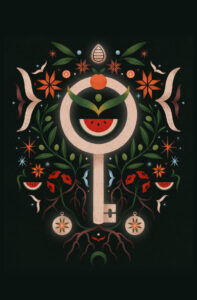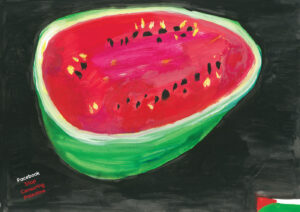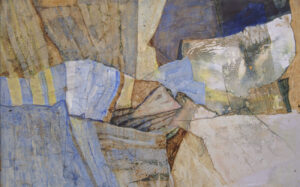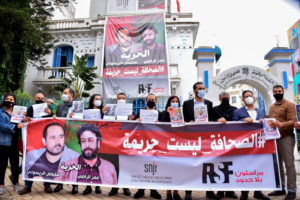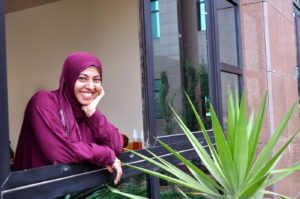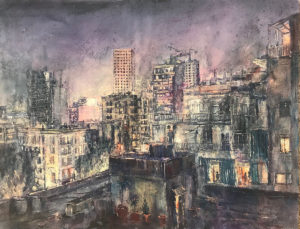Lebanese intellectuals’ defense of expat director warns of state chokehold on freedom of expression.
“Theatrical” perhaps best describes the current state of Lebanon’s performing arts scene, which seems to be embroiled in its own drama in recent days. Early this year, we bade farewell to the director and actor duo Antoine and Latifa Multaqa, pioneers of Lebanese theatre’s 1960s avant-garde era and, for a moment, relished in nostalgia for Beirut’s culturally vibrant bygone days. Unfortunately, such rose-tinted memories have little room under the stifling atmosphere overtaking much of Lebanon’s arts and culture. The latest to spark an outcry in media headlines follows the decision by Beirut’s Le Monnot Theatre to cancel France-based Lebanese-Canadian writer, actor and director Wajdi Mouawad’s play Wedding Day at the Cro-Magnons, which had been slated to show in 2024, after pressure and threats against the director.
Initially written in 2008, Wedding Day follows an absurd yet tragic event in the lives of a Lebanese family preparing to celebrate the wedding of their eldest daughter, who is narcoleptic, as the civil war (1975-1990) rages on around them. The play was presented in London in 2008 by director Patricia Benecke to a lukewarm reception. However, Lyn Gardner in the Guardian commended Mouawad’s exploration of how “continual exposure to violence infects all aspects of life” and “the human instinct to try to maintain some kind of normality even amid the carnage.”
From the synopsis alone, Wedding Day doesn’t raise any alarms. Yet Mouawad’s mere presence in Lebanon has prompted a full-fledged boycott against the director, leading to the play’s cancelation and a smear campaign against him. Those familiar with the director’s previous works know Wajdi Mouawad is no stranger to controversy, having come under fire numerous times for his casting of French singer Bertrand Cantat, who was convicted of murdering his partner Marie Trintignant in 2003, as an actor in his play Women (Des Femmes, 2011) and one of the music producers in his autobiographical play Mother (Mère, 2021).
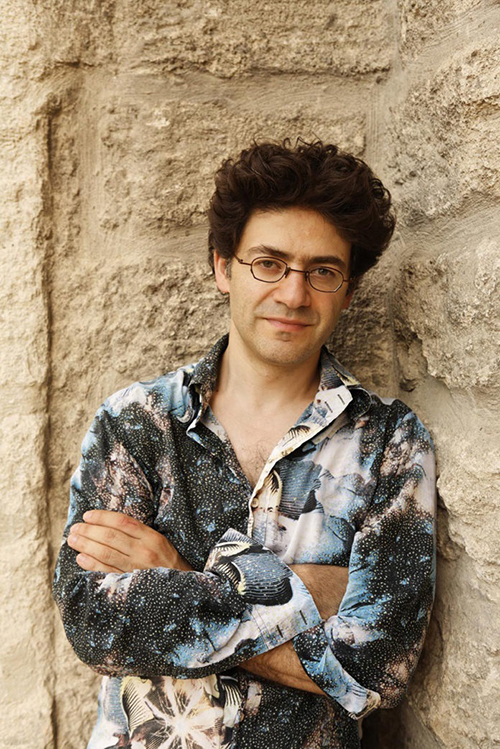
The recent controversy surrounds his play All Birds (Tous des oiseaux, 2017), a Romeo and Juliet-esque story that stepped on many toes for exploring a romance between Eitan, a scientist of German Jewish descent, and Wahida, an American grad student of Arab Moroccan descent, along with the complexities of navigating the contradictory history and reality between Palestinians and the Israeli occupiers. Activists reported Mouawad to the Military Prosecutor’s Office on charges of normalization and supposed links with Israel.
The situation with Mouawad is far from isolated and is the latest in an expanding list of Lebanese creators and intellectuals subjected to similar accusations in recent years. One may recall the Lebanese-French author Amin Maalouf, Secretary-General of the Académie Française, who was smeared on social media and treated as a traitor for a French-Israeli interview broadcast on television; or director Ziad Doueiri, who was also called a “traitor” following the success of his film The Insult (2017) when the military court interrogated him for scenes of his previous film The Shock (2011) that was partially filmed in Israel. (Ironically, Doueiri had requested permission from official security authorities to film there in the first place. His name has since been cleared, but the director has not returned to Lebanon after the threats against him, according to Nida al-Watan’s Imad Moussa.)
Condemnations of censorship from Lebanese intellectuals now rise in support of Mouawad, warning of the state’s vice grip over culture and its impact on freedom of expression. The current condition of Lebanese theatre arts reveals a nation suffering from cultural and artistic stagnation, if not decline; once boasting 20 theatres, Lebanon only hosts less than a handful, losing many historic establishments like the Colonial Theatre to demolition and new construction. Censorship, like a slow-acting poison, has gradually destroyed the cultural richness of Lebanon for decades and continues today under the pretense of “normalization” accusations.
Mouawad’s censorship embodies intellectual and artistic repression afflicting all Lebanese artists. According to Abdo Wazen of Independent Arabia, the smear campaign was orchestrated by a prominent Lebanese actress (whose name he omits) with the support of “politically inverted” journalists who benefited from sowing controversy. A report by Nadia Elias in Al Quds Al Arabi identified the actress as Al Madina Theatre’s founder, Nidal al-Ashkar, citing that some believe she was responsible for the cancelation and the submission of a judicial report against the play. A defective audio recording of the actress circulated on media outlets accuses Mouawad of being a traitor and “collaborator,” calling for him to be put on trial.
Wazen discredits Ashkar’s claims, pointing out that ironically, the actress faced her own share of censorship obstacles in the past that would lead one to expect a sense of camaraderie between her and Mouawad, both victims of repression. During its performance in 1969, the play Majdaloun, directed by Ashkar and Roger Assaf and written by Henry Hamati, was interrupted when Internal Security Forces stormed the theatre, forcing the actors to continue the performance on the street accompanied by the security forces. In the words of Mona Merhi in the online theatre-centric platform HowlRound, the incident set a “historical and legal precedent following which theatre workers in Lebanon enjoyed broader freedom up until the outbreak of the civil war when censorship measures returned to being a fierce weapon against freedom of speech.” Ashkar’s hand in imposing censorship goes against the spirit of that freedom. In response to criticism, however, she explained in Al Quds Al Arabi, “I am not against freedom of expression, but I am against normalization with Israel in all its forms and against dealing with Israel, whether directly or indirectly.”
In a contradictory turn, Mouawad’s All Birds, which caused a stir in 2022 after accusations of anti-Semitism led to its cancellation in Germany, today faces charges of normalization with Israel. Meanwhile, Wazen states that Mouawad’s accusers overlook the fact that Mouawad had established his position in a recent French radio broadcast, in which he said, “Netanyahu is a criminal.”
Mouawad elaborated on his position in a recent television interview on LBCI Lebanon with Albert Kostanian: “If there is a place where I want to choose my side, it’s not between Palestinians or Israelis, between Lebanese Shiites or Lebanese Sunnis; it’s not between identities.” He quotes Sophocles’ Antigone, which he says forms the basis of his approach: “I was born to share in love, not to hate…If I want to choose my camp radically, it’s between these two words.” Mouawad’s choice is “love.”
The ongoing Palestinian-Israeli conflict, which he refers to as a “fratricidal war,” has alternated “assassins.” At the moment, the Israeli government is a government of assassins, just as Hamas’ doing on October 7 was an assassin’s attack, he says. Mouawad recognizes that many Lebanese would disagree with his position but firmly stands by “nuance”: “The moment you try to be nuanced, they will come upon you. The nuance is complicated to maintain, and even if it hurts very much, it is in the nuance that you must position yourself.” Mouawad believes in a humanist solution, stating there is no justice born out of the destruction of one nation or the elimination of a people.
He clarifies that he does not take the accusations personally but is caught in an internal Lebanese conflict. Instead, he states that he is “sad for the actors” and considers the cancellation of his play a “heartbreaking moment for all the technicians involved.” However, he finds the situation anthropologically exciting and potentially a subject to explore in a future play.
Hazem Saghieh explains in Asharq al-Awsat that Mouawad has been deemed a “normalizer” by activist groups because he “refuses to see the world as a permanent and absolute war.” They level numerous accusations against him, as listed by Imad Moussa: making contact with the Israeli enemy, violating the Lebanese Anti-Israeli Boycott Law, as well as being guilty of “normalizing history” and “promoting the Israeli occupation.”
Lebanon’s days as a celebrated “beacon of freedom” have long since become a remnant of the past, suffocated by artistic censorship that has grown rampantly beyond control over the past century.
Outlining his criticisms of the accusations, Moussa’s defense of Mouawad calls into question the logic and absurdity of the arguments, pointing out that those who oppose the director failed to watch or read the play, which they claim was funded by the Israeli Embassy in Paris and the Cameri Theatre of Tel Aviv in 2019. Mouawad’s casting of Israeli and Palestinian actors from occupied Palestine contributed to the public furor. La Colline Theatre had contacted the French Ministry of Culture to secure the actors’ travel from Israel through the Israeli Embassy in France. Reportedly, one of the acting roles performed by a Syrian refugee was also replaced by an Arab Israeli actor instead during the performances in Tel Aviv due to travel complications.
According to Moussa, the bulk of those in objection to Mouawad are supporters of the military judiciary, who he implies have little incentive to view the play on an artistic level since they consider the issue legal. He poses rhetorical questions belying the ulterior motives at play: “Which legal violation is the most horrific: establishing a religious state within a state in Lebanon whose approach and practice is inspired by “Khomeiniism” in contravention of the Lebanese constitution, plunging Lebanon into wars, and exposing its people to killing and displacement as an approach and practice, or presenting a play?”
Like Wazen, Moussa also criticizes the lack of substance behind the normalization claims. He addresses one accusation against Mouawad of having “culminated his always-declared hatred of the Palestinians with a position that demonized the resistance forces after the “‘flood of Al-Aqsa,”’ and that Mouawad “suggested that Hamas militias are a symbol of ‘the forces of crazy darkness,”’ countering in response: “When did criticizing Hamas, Sinwar, and those who risk Palestinian lives become a crime?” Moussa writes that Mouawad’s opposition failed to realize the director merely echoes the words of Palestinian ambassador and member of the Palestinian National Council, Osama al-Ali, who, in a televised interview stated, “The Hamas group is crazy,” “Haniyeh is raving,” and “This is crazy, and everything that is happening in Gaza was done by crazy people when they entered the flood.”
Abdo Wazen especially criticizes the absurdity of normalization accusations on a general level, which are thrown around frequently now. Arab novelists and poets who participate in international conferences that include Israeli participants, whether writers, journalists, or politicians in attendance, are persecuted and considered “treacherous” for speaking with them, even if these meetings were quick or short notice.
Wazen criticizes the leading group making these accusations, the “Resilience and Confrontation Committee” in Lebanon, whose proposed solution for writers is to withdraw from international literary festivals, “leaving the arena to the enemies.” He writes: “Arab writers must disappear and dissolve if Israeli intellectuals attend festivals; otherwise they are ‘traitors,’” which in turn denies Arab writers and intellectuals platforms to counter the Israeli narrative with their positions, poems, or texts. To this, Wazen retorts that under the guidelines of the Resilience and Confrontation Committee, Arab intellectuals essentially become like a “bogeyman,” speaking and acting from afar where their words have no reach. As he writes in Independent Arabia, “The methods used against artists and intellectuals are demagogic and not based on facts. The real traitors and collaborators who deserve to be exposed are left alone, and the focus is on genuine and authentic intellectuals who only hold a different perspective than those rejectionists.”
Lebanon’s days as a celebrated “beacon of freedom” have long since become a remnant of the past, suffocated by artistic censorship that has grown rampantly beyond control over the past century. Censorship laws in Lebanon can be traced back to the 1940s when bans were most often related to sexual or religious content. One law written in 1947 requires television programs and films to pass through the censorship board. Following the 1948 Arab-Israeli war, the majority of censorship bans from 1950 to 1968 explicitly related to Israel and Judaism.
The outbreak of the civil war between 1975 and 1990 widened the reach of censorship into other aspects of culture, like music, based on any references to the war’s political memory and homosexuality, on top of existing limitations on religion and Israel. A legislative decree issued in 1977 requires all theatrical scripts to be submitted to the Bureau of Censorship for review and an official permit issued before they are shown in public places.
Censorship has worsened in recent years with rising political unrest, from the Civil War, the war in Syria, and the unstable state of the presidential office to recent events since October 7 of last year. According to Al Jazeera, experts attribute this shift to the state’s emphasis on promoting sectarian unity by preventing discussion of the Civil War. Censorship was deemed justified in situations of national war, during which cultural life was controlled to maintain war interests, as Hazem Saghieh states in Asharq al-Awsat. Since the 90s, Lebanon witnessed a decline in freedom of expression; meanwhile, censorship practices have only grown stronger, becoming systemized without clear legal justification, according to Mona Merhi in HowlRound. In the words of Merhi, “A work of art exists to ask questions and challenge common conceptions by presenting the artist’s singular vision. Therefore, a work of art is not a commodity, nor should it be concerned with ‘maintaining public order’ or exist to ‘serve the national interest.”’ She adds that censorship practices exploit loose legal terminology to erase the collective memory, especially concerning the Civil War. The comedy-drama film A Civilized People was banned in 1999 for portraying a romantic relationship between a Muslim militiaman and a Christian maid during the conflict.
This has dealt harsh blows to Lebanon’s culture and arts, with impacts that paint a bleak picture of the country’s creative future. Censorship bans frequently targeted popular culture imported from elsewhere. The 1955 Lebanese Anti-Israeli Boycott Law outlaws any material related to Israel, though censorship decisions have also targeted anything Jewish. The film The Milkman was banned in 1960 because one of its actors, Jerry Lewis, was of Jewish origins, cites Al Jazeera. In 1973, Johnny Holiday was banned from Lebanon after two concerts in Beirut for his “twist” dance. Of Mice and Men, John Steinbeck’s classic novella, was banned because his name sounded Jewish, though the ban was lifted when they confirmed Steinbeck was not Jewish, according to the Daily Star, as cited in the Denver Post. Creators with any kind of connection to Israel were subject to censorship, whether they visited Israel in the past, converted to Judaism, or supported Israel. In one absurd case cited by the Denver Post, Francis Ford Coppola was refused entry by airport security because part of the engine of his private jet was made in Israel. He was forced to land in Damascus and travel by land to open the Beirut Film Festival.
Censorship laws did not stop at cultural imports but also expanded to the creative production among Lebanese artists. Merhi cites that before 1999, festivals weren’t subject to censorship, but since then, all festivals have been “subject to control,” from performing arts like dance to theatre. Scenes from La Route de la Soie depicting men in a prayer position and women dancing to the music of Umm Kulthoum were considered indecent. Meanwhile, directors would wait years and make several attempts to receive permission for their works, as in the case of Lina Khoury, who waited two years for permission to present her play Haki Neswen (Women Talks), based on Eve Ensler’s The Vagina Monologues, which was only accepted after modifications to the script.
In 2014, the Denver Post spoke with Lea Baroudi, a founding member of the Lebanese NGO “March,” founded in 2011, which documents the censorship practices in Lebanon in their Virtual Museum of Censorship, with archives from 1940 to the present. Baroudi attributes the threat against arts and culture to the volatile nature of Lebanon’s censorship. In her words, “The laws of censorship are so vague that it allows the people in charge to censor anything they want… Censorship of art and culture is particularly harmful as these mediums are tools for peace and dialogue.”
One play written by Issam Mahfouz and directed by Sahar Assad exemplifies the unpredictable elements factoring into censorship decisions. The play, originally titled The Dictator, was changed to The General and then back to The Dictator out of fears that “General” alluded to then-President General Fouad Chehab; today, the title has once again been changed back to “The General” due to aversion to referencing dictatorships.
Criteria for censorship remain broad and vague. As the censorship bureau outlines, works are subject to censorship if found offensive to the public’s sensitivities, are propaganda against Lebanese interests, disrespect public order, morals, and good ethics, or expose the State to danger. Lebanon lacks a centralized censorship body, which Baroudi explains allows ministries, commissions, and general security to ban material at their discretion, often with the influence of religious authorities, political parties, and even foreign embassies. Further, the public cannot access censorship records.
Censorship methods are just as arbitrary as their decisions. According to Baroudi, material banned in one medium may be allowed in another format. At the same time, some items will simply be blacked out to remove attribution while the content remains unchanged and intact. The trend of censorship and making everything taboo to “please and appease every group and community… it’s making them worse and building up tensions,” she states in an article published by Voice of America (VoA) news. The only ones suffering the consequences, she says, are artists and directors, as the censorship itself is inefficient; black marker censors are easily bypassed, while banned content can be found elsewhere in a different media format, arguably protecting no one despite the bureau’s claims.
Moreover, since censorship decisions are imposed verbally rather than formally written, they are difficult to counter. As Baroudi states in Voice of America, the vagueness gives a “substantial margin for General Security to over-interpret.” VoA cites Firas Talhouk, a researcher for Lebanese organization SKeyes Media, who furthers that the censorship laws fluctuate based on the day’s politics, adding that “the pressure of censorship goes beyond the government. There are certain political figures you cannot talk about, but it’s not only because of censorship. It is also out of social and self-censorship.” As Mona Merhi explains in HowlRound, censorship measures typically go undocumented because artists are hesitant to make their stories with the censorship department public “for fear of future measures being taken against them by the censor,” noting that Lebanon lacks union mobilization and vital networking among its artists. The restrictive censures undoubtedly stifle the expression and creativity of artists and writers, who self-censor to ensure their work gets approved, compromising the quality of their art.
The full breadth of damage caused to Lebanon’s creative sectors throughout its history of censorship remains to be seen as it navigates crisis after crisis. Far from the Gaza battlefield, two main casualties occurred: the weaponization of language on one level and restrictions on freedom of expression on the other.
Both sides of the Gaza-Israel conflict use language to bolster their positions. The Israelis generalize extreme language to ascribe acts perpetrated by Hamas to all Palestinians. Terms used include “Holocaust” and “genocide.” However, world public opinion, as evidenced by large numbers of university students from Harvard to Columbia, has since rejected what they consider mere Israeli propaganda.
At the same time, Hamas, parts of the Arab press, and Palestinian activists do not fare better. Language has become a casualty of the war, leaving the objective observer unable to distinguish between Israeli and pro-Hamas languages. Meanwhile, the popularized usage of loaded words, like the aforementioned “genocide,” has led some writers to use them, albeit innocently, in different contexts, detracting the weight of these words’ intended meanings.
Hazem Saghieh disputes the justification of the war as grounds for censorship, presenting one argument among critics who argue that “this war itself is suspicious, targeting them and aiming to subjugate them under the pretext of its clash with Israel.” Saghieh suggests that ruling parties are using the conflict with Israel as a convenient front to tighten their control over Lebanese society.
According to him, the division within Lebanon differs vastly from other historical instances of division; France under Nazi occupation, for example, experienced ideological division, while Lebanon faces civil division that only has two possible outcomes: settlement or war, in this case with the opposing religious, sectarian, or ethnic party. Saghieh goes as far as to say that Lebanon’s censorship aligns with cultural genocide, writing in Asharq al-Awsat: “The tendency to impose a particular point of view on the rest of society indicates a genocidal tendency, or at least a genocidal intention for a way of life, an intention whose ability to implement it and make it a material genocide remains dependent on the circumstances and capabilities available to the genocidal party.”
Harsh characterizations of the Gaza War have claimed literary creativity and freedom of expression. For example, last year, an award ceremony for Palestinian author Adania Shibli at the Frankfurt Book Fair was canceled in the wake of Hamas’ attacks on Israel on October 7. The ceremony was in honor of the author, who received the 2023 LiBeraturpreis award for her novel, Minor Detail, (reviewed in both Al Jadid and The Markaz Review).
Many recognized the repression of free expression against Adania Shibli when it was carried out in an advanced Western democracy. However, in Lebanon, considered the most accessible Arab country regarding freedom of expression, the same courtesy does not apply to its own artists. The recent cancellation of Wajdi Mouawad’s play is not an isolated infringement of freedom of expression in Lebanon but rather a glimpse into a more significant problem experienced by many artists suffering from similar cases.
What is at stake goes beyond banning a play or book, but the entirety of Lebanon and its rich, diverse, and accessible choices. Saghieh warns that militant censorship will not stop at Wajdi Mouawad but will extend to others; soon enough, one cannot watch Steven Spielberg’s movies in Lebanon or read books by Jurgen Habermas. Countless philosophers and creators will be banned because the ruling party dislikes them. These “genocidal intentions,” as he calls them, have contributed to racism against Syrian refugees and any of those they view as weaker than them.
Abdo Wazen suggests that the campaign against Mouawad has effectively distorted Lebanon’s global image. Wazen and Saghieh’s expected results for arts and cultural production in Lebanon are reasonable. According to Wazen, Lebanon’s image as a beacon of openness and enlightenment is distorted by the censorship campaign against artists and intellectuals. Saghieh says censorship policies against artists and intellectuals in Lebanon and elsewhere constitute “literary genocide” if they are designed to destroy or discourage literary creativity. Reports by the Denver Post in 2014 listed several drawbacks of Lebanon’s censorship practices: “Censorship insults their intellect.” A decade later, amid recent calls for censorship under the pretexts of normalization with Israel, it may be prudent to recall the words of French philosopher Claude Adrien Helvetus: “To limit the press is to insult a nation; to prohibit reading certain books is to declare the inhabitants to be either fools or slaves.”
This essay is scheduled to appear in the forthcoming Al Jadid Magazine, Vol. 28, No. 85, 2024, copyright © 2024 Al Jadid Magazine and appears in TMR by special arrangement.




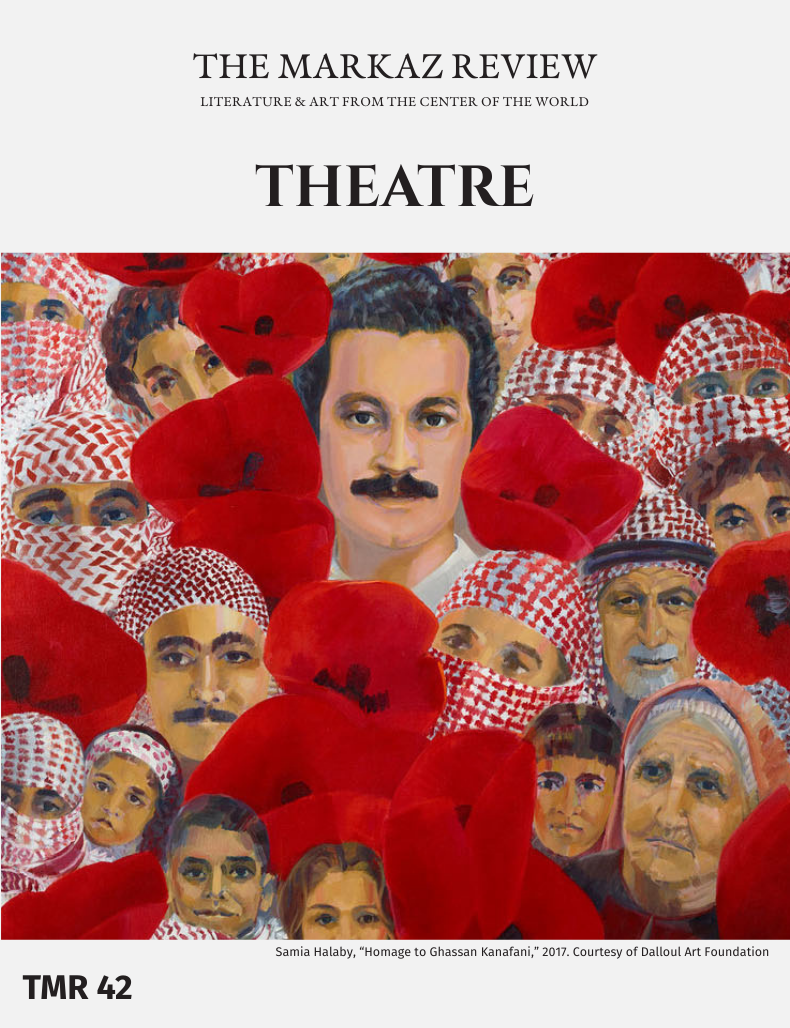




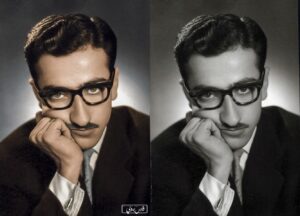



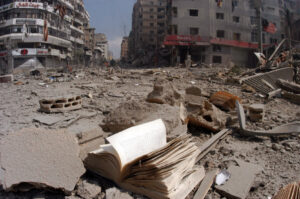



![Ali Cherri’s show at Marseille’s [mac] Is Watching You](https://themarkaz.org/wp-content/uploads/2025/09/Ali-Cherri-22Les-Veilleurs22-at-the-mac-Musee-dart-contemporain-de-Marseille-photo-Gregoire-Edouard-Ville-de-Marseille-300x200.jpg)

















